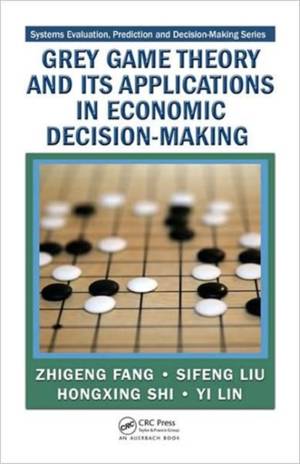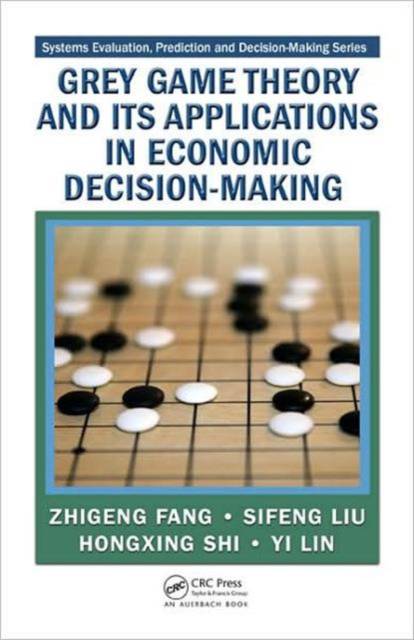
- Retrait gratuit dans votre magasin Club
- 7.000.000 titres dans notre catalogue
- Payer en toute sécurité
- Toujours un magasin près de chez vous
- Retrait gratuit dans votre magasin Club
- 7.000.0000 titres dans notre catalogue
- Payer en toute sécurité
- Toujours un magasin près de chez vous
Grey Game Theory and Its Applications in Economic Decision-Making
Zhigeng Fang, Sifeng Liu, Hongxing Shi, Yi LinDescription
To make the best decisions, you need the best information. However, because most issues in game theory are grey, nearly all recent research has been carried out using a simplified method that considers grey systems as white ones. This often results in a forecasting function that is far from satisfactory when applied to many real situations. Grey Game Theory and Its Applications in Economic Decision Making introduces classic game theory into the realm of grey system theory with limited knowledge. The book resolves three theoretical issues:
- A game equilibrium of grey game
- A reasonable explanation for the equilibrium of a grey matrix of static nonmatrix game issues based on incomplete information
- The Centipede Game paradox, which has puzzled theory circles for a long time and greatly enriched and developed the core methods of subgame Nash perfect equilibrium analysis as a result
The book establishes a grey matrix game model based on pure and mixed strategies. The author proposes the concepts of grey saddle points, grey mixed strategy solutions, and their corresponding structures and also puts forward the models and methods of risk measurement and evaluation of optimal grey strategies. He raises and solves the problems of grey matrix games. The book includes definitions of the test rules of information distortion experienced during calculation, the design of tokens based on new interval grey numbers, and new arithmetic laws to manipulate grey numbers. These features combine to provide a practical and efficient tool for forecasting real-life economic problems.
Spécifications
Parties prenantes
- Auteur(s) :
- Editeur:
Contenu
- Nombre de pages :
- 360
- Langue:
- Anglais
- Collection :
Caractéristiques
- EAN:
- 9781420087390
- Date de parution :
- 26-08-09
- Format:
- Livre relié
- Format numérique:
- Genaaid
- Dimensions :
- 156 mm x 234 mm
- Poids :
- 684 g

Les avis
Nous publions uniquement les avis qui respectent les conditions requises. Consultez nos conditions pour les avis.






